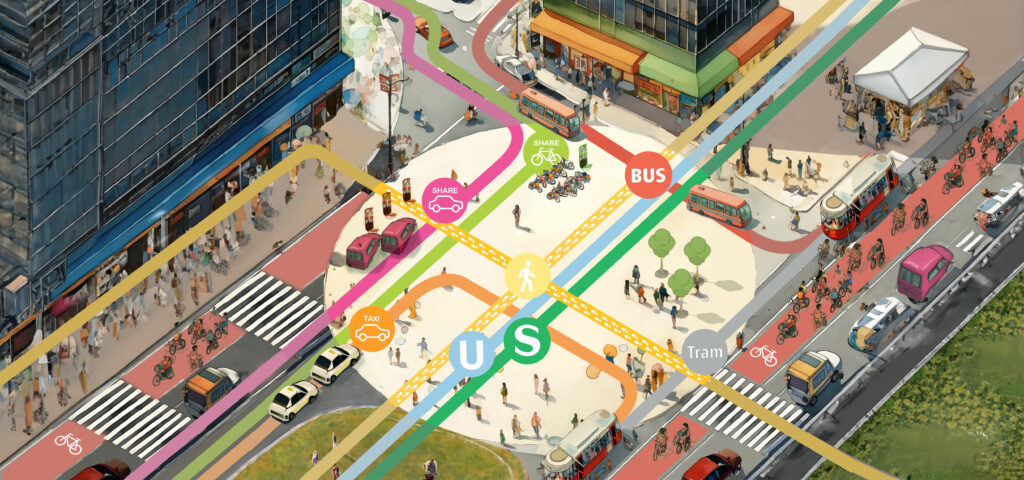
Initial situation and research questions
The creation or maintenance of an efficient and environmentally friendly municipal mobility system is a central task for the future of the city of Offenbach am Main. However, the linking of mobility services has deficits in terms of information and orientation, but also in terms of accessibility and usability. This concerns both the physical space and digital access. The mobility services are not communicated consequently as a cohesive system and are therefore not intuitively experienced by the users as an intermodal mobility system.
The City of Offenbach and the OIMD at the HfG Offenbach are working together in this project with the aim of developing new forms of control, planning and development. With the involvement of business, science and civil society, they are developing a systematically oriented, scalable and transferable concept for the design of an intermodal mobility system, which takes into account the needs of users. Strengthening environmentally friendly, multimodal mobility is essential here. Accordingly, the aim is an intermodal oriented mobility system, i.e. a transport system that creates efficient, attractive and environmentally friendly solutions for individual mobility needs by combining walking, cycling, public transport and car (sharing) in a straightforward and barrier-free manner.
Project goals and expected results
The goal is to achieve by promoting intermodal mobility a reduction in motorized private transport, a reduction in traffic-related pollutant emissions, improved access to mobility for all population groups, and improved quality of stay in terms of safety, reliability and comfort (design quality). To this end, the City of Offenbach and the OIMD are
Communication and Participation
On July 7, 2023, a communication campaign was launched as part of the project with information and hands-on activities under the title “Offenbach versteht Bahnhof”.
Type of project • Research project
Lead • Prof. Dr. Kai Vöckler, Prof. Peter Eckart
Team • Dipl.-Des. Heike Andersen, Dipl.-Des. Julian Schwarze, Dipl.-Des. Annika Storch, Carola Schulz
Status • ongoing
Duration • 09/2021 – 08/2024 (followed by phase 3)
Cooperation • Stadt Offenbach, Amt für Stadtplanung, Verkehrs- und Baumanagement, Stadtrat Paul-Gerhard Weiß, Dr. Andreas Blitz, Dipl.-Soz. Hanna Bader, Dipl.-Des. Andreas Grzesiek
Funding • Federal Ministry of Education and Research (Funding measure “MobilitätsWerkStadt 2025”)